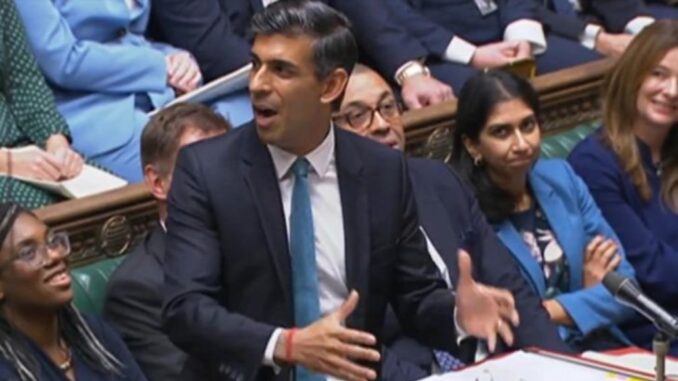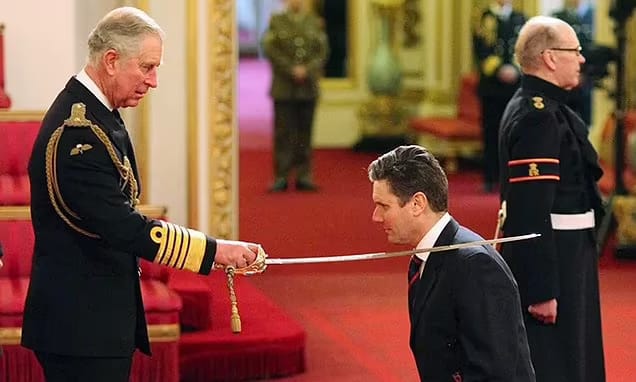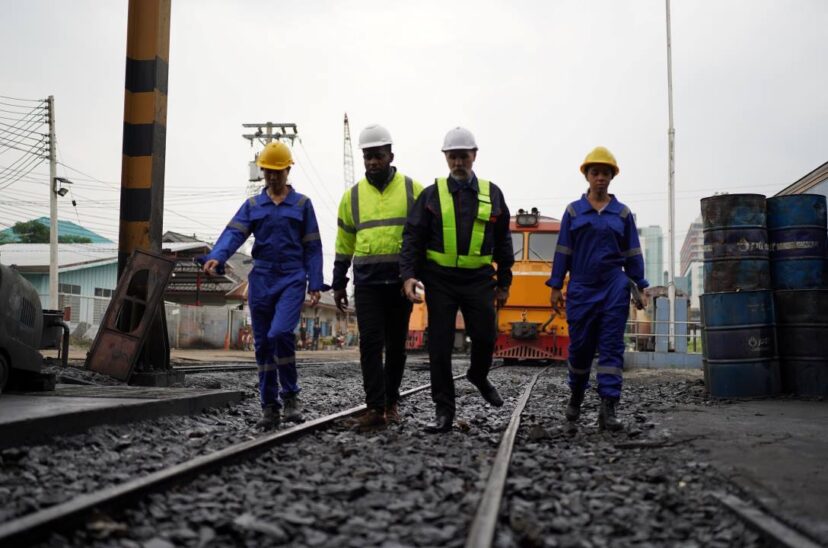
The election is a maneuver by the Conservative Party. The Labor Party increasingly looks like its opponents. The social inequality gap is widening and the life of working people is becoming increasingly difficult. The two-party system and the monarchical regime are undemocratic and outdated. It is necessary to form an alternative pole of revolutionaries that can grow with the the workers’ struggles.
By Julio Santana – ISL United Kingdom
A crisis maneuver
Rishi Sunak ‘s government called elections for July 4. He had time to do so until January of next year, but decided to bring them forward due to the crisis of the regime and the growing popular discontent. He did so with the intention of contending under the best possible conditions or, at least mitigating the effects of a serious defeat. In the municipal elections held in May there was a sign of electoral trends: the Conservative Party lost around 500 councilors who were mostly replaced by the Labor and Liberal Democrat parties. Will the maneuver be a lifeline for the government or will it “backfire”? We will see.
They protect the institutional regime
Sunak was able to carry out this maneuver thanks to the role played by the Labor Party and the union leaders who calmed anger to direct discontent through the channels of the regime; instead of coordinating and extending the great workers’ strikes that shook the United Kingdom. The situation could have been very different if they had acted in the interest of the victory of the struggles and the general strike, something that would have strengthened the working class and weakened those who intend to continue oppressing it, but with a “human face.”
Less well-being for the many
The UK emerged from recession and inflation is low compared to other countries. But the crisis of the capitalist economy continues its course and cannot be hidden behind statistical figures that are as modest as they are partial. The indicator that matters most is the living conditions of workers, and that parameter is going from bad to worse. In the north of the country, the Tata Group company, a steel producer, will leave 2,800 workers on the streets thanks to the construction of a new, supposedly “more efficient” and “greener”, blast furnace. These are false excuses because capitalists are not interested in preserving the environment but in increasing their profits. Other companies, such as water supply companies, threaten to eliminate jobs, arguing: “we are going through a bad situation. ” The truth is that, while they pollute natural waterways with total impunity, they ask the government for millions of pounds that go into the pockets of their CEOs in salaries and bonuses.

More profits for the few
It is increasingly noticeable that nonsensical capitalism generates a feast for a handful of privileged people: “In 2022, the CEO of Omers, Blake Hutcheson, earned the equivalent of £3 million. Hutcheson’s earnings pale in comparison to those of the CEO of Macquarie, an Australian asset manager that sold its stake in Thames Water to Omers. Last year alone, the chief executive took home a whopping 30 million Australian dollars (£15.5 million). These extraordinary figures are a severe criticism of a truly ridiculous system.”
On the flip side: “Since privatization in 1989, water bills in Britain have risen by 360%, more than double the rate of inflation (in Scotland, water is owned by the government and bills are lower). At these prices, you would think our water system would be state-of-the-art. Instead, this week news emerged that Thames Water was responsible for almost 17,000 occasions of raw wastewater discharge in 2023 due to poor overflow systems that have not had sufficient infrastructure investment.” Bank and business bailouts that are financed with money that the people contribute through taxes lead some managers to earn up to 50 times more than a worker with the average salary. Neither the Conservatives nor the Labor Party want to nationalize the companies under the control of their workers and users to put an end to such absurdities.
With one of their own in Number 10
The bosses can act this way because they are protected by a prime minister of their own ilk. Sunak is an incompetent millionaire who is not going to change the harsh reality of millions of people because he already owns millions of pounds destined to change his own reality and make it increasingly privileged. The only thing that can be expected from the Conservative Party and those who represent it is the increase in social inequality.
There is no “New Labour” but old traps
Years ago, the cynical Tony Blair announced the arrival of “New Labour”, but what we got is an old disguise with speeches for the workers and policies for the bosses. The Labor Party is led by an elite of professional civil servants and petty bourgeois intellectuals who are increasingly distant from the reality that millions of people in the United Kingdom live. Like conservative leaders, they have no idea what it means to suffer lousy living and working conditions. They merely seek to become the top administrators of capital, trying to recreate the false illusion that capitalism can be humanized. To continue existing, the capitalist system has the intrinsic need to guarantee profits by exploiting the working class, without caring about the social suffering it generates.
Increasingly undemocratic methods
Under the leadership of the aristocratic Sir Keir Starmer, the Labor Party’s methods become increasingly undemocratic. On the one hand, they expel and/or marginalize critics, as happened with Jeremy Corbin, Dianne Abott (first Black female MP in UK history) and Faiza Shaheen, who denounced “a systematic campaign of racism, Islamophobia and intimidation” that included personal accusations worthy of Stalinism. On the other hand, those in charge anoint those who are most faithful, among them several union leaders who are already “trying on the suit” to occupy possible positions.

Reflections and questions
Jeremy Corbyn stated that he will run outside the Labor Party, as an independent, and Faiza Shaheen said “I am thinking about it”. Beyond these announcements, underlying problems can be raised. Shouldn’t we lean on the thousands of people who faced the decline of the NHS and those of us who supported workers’ pickets during the struggles? Shouldn’t health care and transportation workers have an alternative that doesn’t betray them? Shouldn’t the hundreds of thousands of people who took to the streets to repudiate the genocide in Gaza have proposals to take a step toward a political organization? Isn’t it time to consider assuming the defense of a truly anti-capitalist and socialist program?

Where are we going?
The July 4 elections will be a passing station in which the Conservative Party and the Labor Party will compete, but the sufferings of working people will continue the next day. Labor wants to replace the conservatives, but in power they will continue with the tasks that their predecessors began, because they are the “progressive” employees and advisors of capital. Beyond their disputes, their alternation for decades in the government has not brought qualitatively favorable changes to the workers and the people nor will it bring them in the future. For these reasons we do not call to vote for any of the variants that defend capitalism and the monarchical regime. It is time to begin laying the foundations to build a consistent anti-capitalist left pole, to face the hard times ahead, to support the workers’ struggles and fight for fundamental changes. These are tasks that go beyond electoral matters to be urgently addressed by the entire left, mainly those that claim to be socialist and revolutionary.








